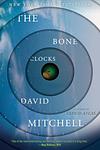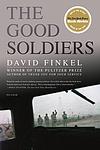The Greatest "Fiction, Iraq" Books of All Time
Click to learn how this list is calculated.
This list represents a comprehensive and trusted collection of the greatest books. Developed through a specialized algorithm, it brings together 300 'best of' book lists to form a definitive guide to the world's most acclaimed books. For those interested in how these books are chosen, additional details can be found on the rankings page.
Genres
Countries
Date Range
Reading Statistics
Click the button below to see how many of these books you've read!
Download
If you're interested in downloading this list as a CSV file for use in a spreadsheet application, you can easily do so by clicking the button below. Please note that to ensure a manageable file size and faster download, the CSV will include details for only the first 500 books.
Download-
1. Epic of Gilgamesh by Unknown
This ancient Mesopotamian epic follows the story of Gilgamesh, a demigod king who rules over the city of Uruk. Unhappy with his reign, the gods create a wild man named Enkidu to challenge him. However, Gilgamesh and Enkidu become close friends and embark on several adventures together, including defeating the demon Humbaba and killing the Bull of Heaven. After Enkidu's death, Gilgamesh becomes obsessed with finding immortality, leading him on a journey to meet Utnapishtim, the only human who has been granted eternal life. The narrative explores themes of friendship, mortality, and the meaning of life.
-
2. Guests Of The Sheik by Elizabeth Warnock Fernea
The book is an autobiographical account of a young American woman's experience living in a small Iraqi village in the late 1950s. As the wife of an anthropologist, she immerses herself in the local culture, particularly the lives of the women, navigating the complexities of gender roles, traditions, and the veil. The narrative offers an intimate glimpse into the domestic lives, social customs, and familial bonds of the villagers, while also reflecting on the author's own cultural assumptions and the process of cross-cultural understanding. Through her journey, the author gains a deeper appreciation for the community's way of life and confronts the challenges of being an outsider in a tightly-knit society.
-
3. Asymmetry by Lisa Halliday
This novel consists of two seemingly unrelated sections. The first part is a love story between a young American editor and a much older, famous writer. The second part is about an Iraqi-American economist detained by immigration officers in London. The two narratives converge in a surprising way, exploring themes of power imbalances, injustice, and the complexity of human relationships.
-
4. The Bone Clocks by David Mitchell
This novel weaves together the lives of diverse characters through a narrative that spans decades, centering on a teenage runaway with psychic abilities. As she becomes embroiled in a covert war between immortal factions, the story explores themes of mortality, power, and the interconnectedness of human lives. The intricate plot moves through different times and places, revealing a hidden world of mysticism and a looming apocalyptic crisis, all while examining the impact of our actions on the future of the planet.
-
5. The Assassins’ Gate: America In Iraq by George Packer
"The Assassins’ Gate: America In Iraq" by George Packer is a detailed account of the United States' involvement in Iraq following the 9/11 attacks. Packer provides an in-depth analysis of the political decisions, military strategies, and cultural misunderstandings that led to the disastrous and ongoing conflict. He also explores the personal stories of soldiers, diplomats, and Iraqis affected by the war. The book offers a critical examination of American foreign policy and its consequences, making it a thought-provoking read for anyone interested in the history of the Iraq War.
-
6. Redeployment by Phil Klay
"Redeployment" is a collection of short stories that gives an intimate and profound look into the lives of soldiers in the Iraq War and their experiences upon returning home. The stories explore various themes such as the brutal realities of war, the struggle to adapt to civilian life, the moral complexities faced by soldiers, and the psychological impact of warfare. The book provides a multifaceted portrayal of the human cost of war, offering a nuanced and empathetic depiction of the men and women who serve in the military.
-
7. The Good Soldiers by David Finkel
"The Good Soldiers" is a non-fiction book that follows the experiences of American soldiers during the Iraq War. The book focuses on the soldiers of the 2-16 Infantry Battalion and their deployment to Baghdad in 2007. Through the eyes of these soldiers, the author, David Finkel, provides a vivid and visceral account of the brutality and chaos of the war. The book explores the soldiers' experiences of combat, loss, and trauma, as well as the impact of the war on their families and loved ones back home. Overall, "The Good Soldiers" is a powerful and moving tribute to the bravery and sacrifice of American soldiers in Iraq.
-
8. The Yellow Birds by Kevin Powers
"The Yellow Birds" by Kevin Powers is a novel that tells the story of two young soldiers, Bartle and Murphy, who are sent to fight in the Iraq War. The novel explores the physical and emotional toll of war on the soldiers, their families, and their communities. It also delves into the themes of guilt, loss, and the struggle to find meaning in the aftermath of traumatic experiences. The novel is a powerful portrayal of the human cost of war and the lasting impact it can have on those who serve.
-
9. The Philosophical Works Of Al Kindi by Peter E. Pormann, Peter Adamson
This book is a comprehensive compilation and analysis of the works of Al-Kindi, often regarded as the first of the Muslim peripatetic philosophers. The text delves into Al-Kindi's extensive contributions to various fields of knowledge, including philosophy, mathematics, astronomy, and medicine, highlighting his role as a pivotal figure in the translation and transmission of ancient Greek philosophy to the Islamic world. Through translations of his works and insightful commentary, the book provides a critical exploration of Al-Kindi's synthesis of philosophical thought and his influence on subsequent Islamic and Western intellectual traditions.
Reading Statistics
Click the button below to see how many of these books you've read!
Download
If you're interested in downloading this list as a CSV file for use in a spreadsheet application, you can easily do so by clicking the button below. Please note that to ensure a manageable file size and faster download, the CSV will include details for only the first 500 books.
Download







